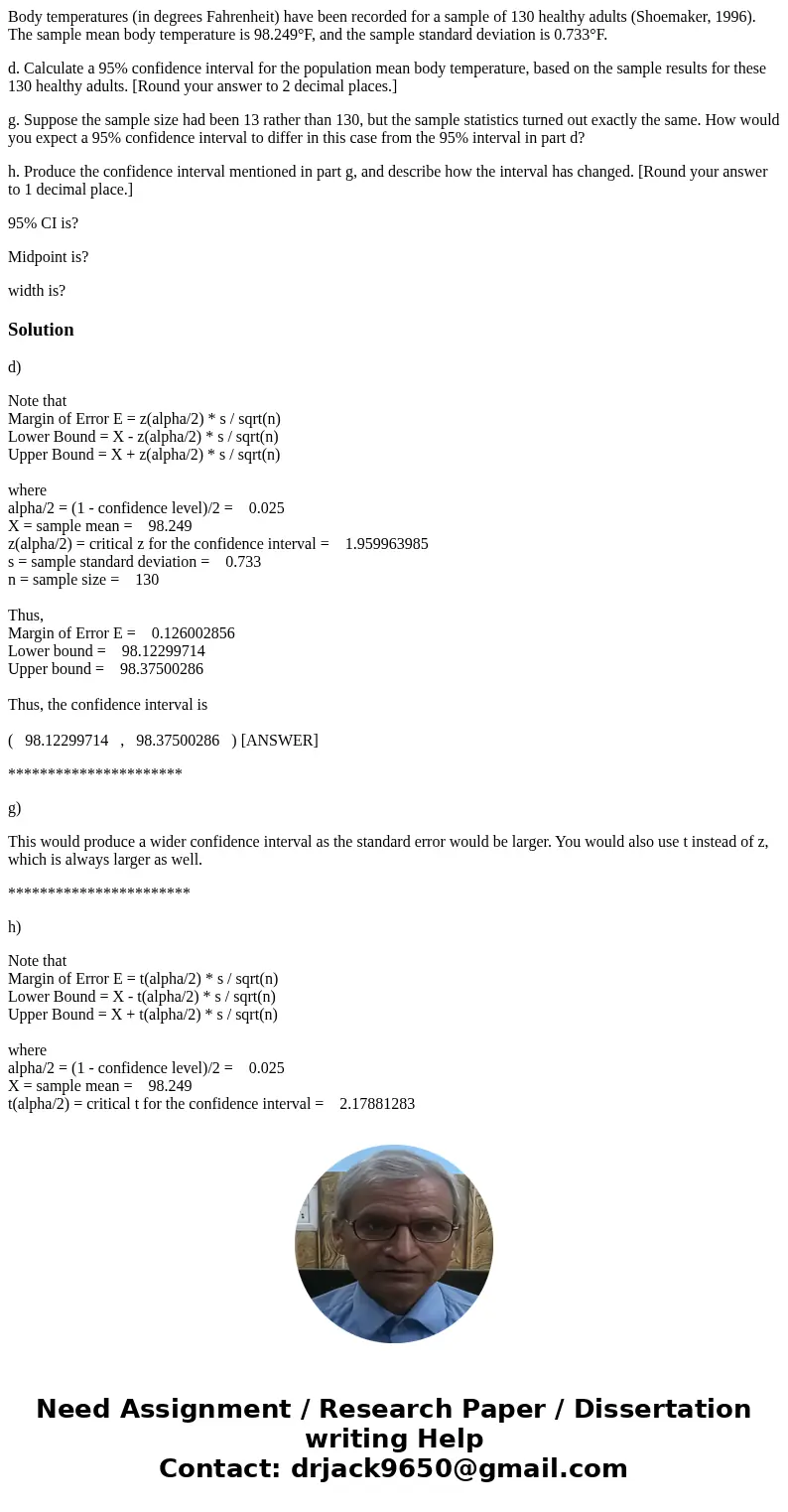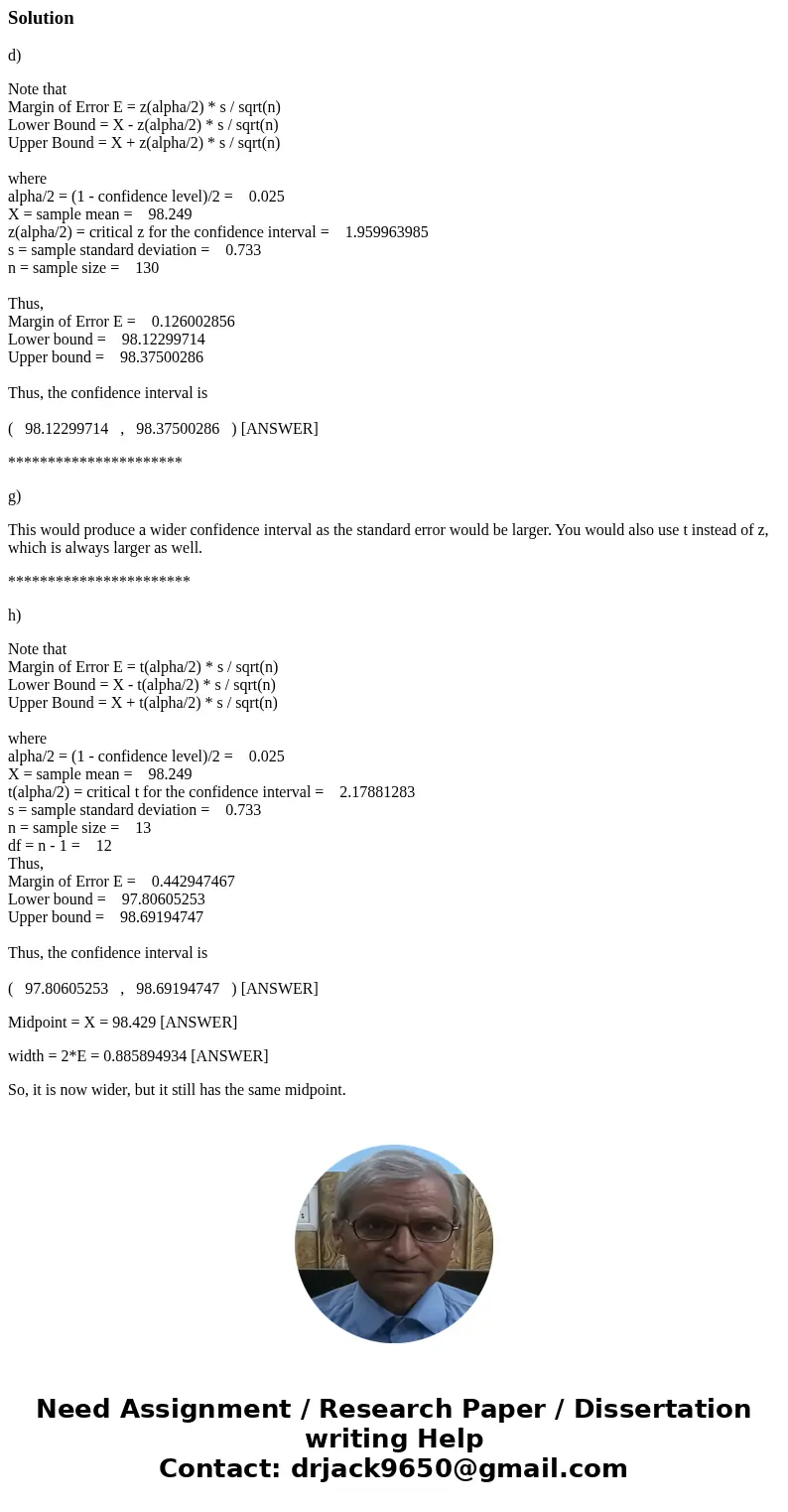Body temperatures in degrees Fahrenheit have been recorded f
Body temperatures (in degrees Fahrenheit) have been recorded for a sample of 130 healthy adults (Shoemaker, 1996). The sample mean body temperature is 98.249°F, and the sample standard deviation is 0.733°F.
d. Calculate a 95% confidence interval for the population mean body temperature, based on the sample results for these 130 healthy adults. [Round your answer to 2 decimal places.]
g. Suppose the sample size had been 13 rather than 130, but the sample statistics turned out exactly the same. How would you expect a 95% confidence interval to differ in this case from the 95% interval in part d?
h. Produce the confidence interval mentioned in part g, and describe how the interval has changed. [Round your answer to 1 decimal place.]
95% CI is?
Midpoint is?
width is?
Solution
d)
Note that
Margin of Error E = z(alpha/2) * s / sqrt(n)
Lower Bound = X - z(alpha/2) * s / sqrt(n)
Upper Bound = X + z(alpha/2) * s / sqrt(n)
where
alpha/2 = (1 - confidence level)/2 = 0.025
X = sample mean = 98.249
z(alpha/2) = critical z for the confidence interval = 1.959963985
s = sample standard deviation = 0.733
n = sample size = 130
Thus,
Margin of Error E = 0.126002856
Lower bound = 98.12299714
Upper bound = 98.37500286
Thus, the confidence interval is
( 98.12299714 , 98.37500286 ) [ANSWER]
**********************
g)
This would produce a wider confidence interval as the standard error would be larger. You would also use t instead of z, which is always larger as well.
***********************
h)
Note that
Margin of Error E = t(alpha/2) * s / sqrt(n)
Lower Bound = X - t(alpha/2) * s / sqrt(n)
Upper Bound = X + t(alpha/2) * s / sqrt(n)
where
alpha/2 = (1 - confidence level)/2 = 0.025
X = sample mean = 98.249
t(alpha/2) = critical t for the confidence interval = 2.17881283
s = sample standard deviation = 0.733
n = sample size = 13
df = n - 1 = 12
Thus,
Margin of Error E = 0.442947467
Lower bound = 97.80605253
Upper bound = 98.69194747
Thus, the confidence interval is
( 97.80605253 , 98.69194747 ) [ANSWER]
Midpoint = X = 98.429 [ANSWER]
width = 2*E = 0.885894934 [ANSWER]
So, it is now wider, but it still has the same midpoint.


 Homework Sourse
Homework Sourse